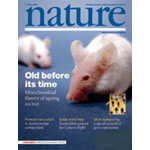
San Antonio (June 8, 2004) – There is important news from The University of Texas Health Science Center at San Antonio about a process that is crucial to cell division and therefore to all of human health.
Cells divide through instructions from our genetic code called DNA, which can be seen in our cells in X-shaped strands called chromosomes. We are endowed with 23 pairs of chromosomes.
When cells divide, the chromosomes first come together, physically pair and then separate. This process, called homologous recombination, ensures that each new cell receives the correct amount and type of DNA, thus preserving the genetic integrity of cells from one generation to the next. “Since pairing of chromosomes is critical to ensure their proper segregation, defects in homologous recombination can lead to birth defects and cancer,” said Wendy Bussen, a contributing author of an article in the May 27 issue of Nature. She is a fourth-year graduate student in the Health Science Center’s department of molecular medicine.
Bussen and Stefan Sigurdsson, Ph.D., a co-leading author and also of the Health Science Center, in collaboration with colleagues at Yale University, studied a protein called Dmc1 that stimulates homologous recombination. “How this protein functions has remained mysterious,” Bussen said. “Our findings have very important implications as to how cells maintain the integrity of the chromosomes.”
The group demonstrated the interaction of Dmc1 with another protein in the homologous recombination pathway, Rad54B. “Little is known about this latter protein, but it has been found to be mutated in some tumors from lymphoma and colon cancers,” Bussen said. “As our research continues, we hope to uncover how Dmc1 and other recombination proteins may work together to prevent cellular DNA damage, the consequences of which can lead to birth defects and cancers.”

